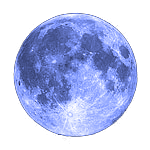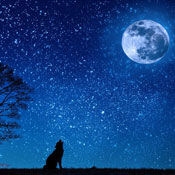Do Wolves Really Howl at the Moon?
It's an age-old question: do wolves really howl at the full moon? Well, the short answer is no. So where does this commonly accepted idea come from.
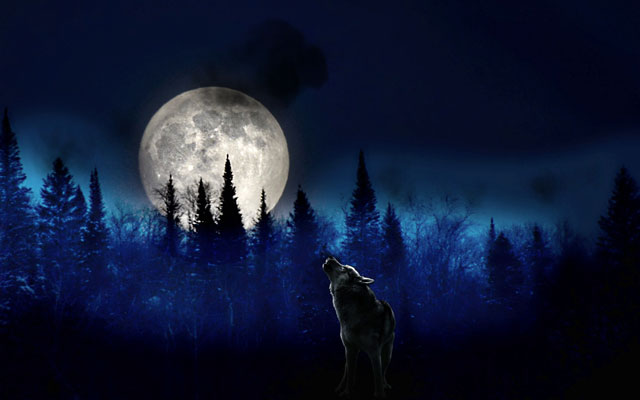
Whilst wolves, like many other animals, are highly attuned to the earth's natural cycles, and have been known to howl at the rise and fall of the sun and moon, they don't specifically howl at the moon. In addition, wolves actually howl at all hours, but they do tend to howl more at certain times of day. Combine this with a heavy does of folklore and superstition and you have yourselves a myth!
Since the dawn of civilization, and beyond, the wolf has had a special place in the tales of man. As a large predator that hunts at night it isn't difficult to imagine why, but throw in a mournful howl in the dead of a winter's night and you can see how the legends might have grown over the centuries.
As time went by the stories grew and became embellished until eventually there was barely a mythology that did not have some connection between wolves and the moon. The ancient Romans, the Vikings and native American tribes all had stories of wolves howling at the moon. But stories are all they are as wolves actually have no more interest in the moon than chickens do.
It isn't difficult to see how the myths arose though. Wolves tend to howl more around dawn and dusk when they are more active. This is when the moon is visible in the sky and a very good reason why people associate wolves with howling at the moon. But, wolves don't howl specifically at the moon, rather they howl at other wolves.
It is actually a common misconception that wolves are nocturnal. It turns out they are just highly adaptive, and if they live near humans they have learnt that it safest for them to hunt at night. In general, if left to their own devices the are crepuscular, or most active during twilight.
But I've seen photos of wolves howling at the moon...
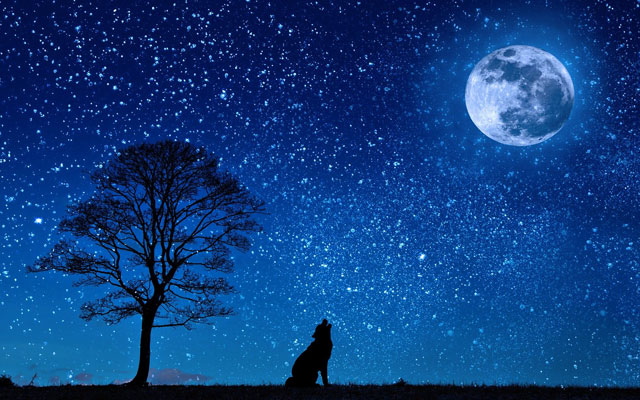
Yes, we've all seen the photos of wolves howling and they invariably have their heads tipped back as if staring skywards. Throw in a backdrop of a full moon and who wouldn't think that wolves howl at the moon.
Whilst this common behaviour has contributed to the myth of the wolf / moon connection it actually serves another, far more functional purpose – it actually makes the sound of the howling carry further. In fact wolf's howls can be heard as far away as seven miles.
Why do wolves howl?
Though wolves have been the subject of countless, often very dark, myths and legends, they are actually a highly social, intelligent and adaptable species. Wolves live and hunt in packs, and they use howling to communicate with each other, to defend their territory and to attract mates. Howling is primarily a way they can stay in touch with each other, even over long distances.
Even the wolf howl itself lends itself to the stuff of legend, somehow resonating in a visceral way with humans. It is possible that this is because it is within the same frequency range we use. But this is just functional; the relatively low frequency sounds travel better than high-pitched. When delivered in a sing-song way it gives it an almost human quality which evokes a response from us whether that be fear or fascination.
So, in conclusion, no, wolves do not howl at the moon. The idea that they do seems to have stemmed from their often nocturnal hunting combined with the image of the wolf with its head thrown back howling to the heavens.
You might also like...
Moon phase today

First Quarter
Next full moons
-
3rd January, 2026
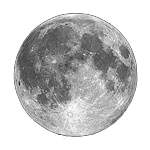
-
1st February, 2026

-
3rd March, 2026

-
2nd April, 2026

-
1st May, 2026

-
31st May, 2026
